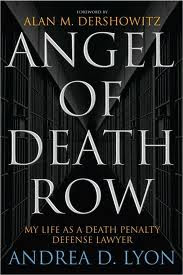 We have discussed here the drive within bioethics and transplant medicine to kill and harvest organs from people in a persistently unconscious condition. We have discusses how euthanasia and organ donation are now coupled in Belgium. And we have discussed how Jack Kevorkian, before turning to the sick and disabled, went from prison to prison asking to use condemned prisoners in medical experiments during executions, in which the killing process would be slowed so he could dig around in their bodies before they died.
We have discussed here the drive within bioethics and transplant medicine to kill and harvest organs from people in a persistently unconscious condition. We have discusses how euthanasia and organ donation are now coupled in Belgium. And we have discussed how Jack Kevorkian, before turning to the sick and disabled, went from prison to prison asking to use condemned prisoners in medical experiments during executions, in which the killing process would be slowed so he could dig around in their bodies before they died.
Now, the New York Times has an opinion piece by a condemned prisoner promoting organ donation from people on death row. From “Giving Life After Death Row,” by Christian Longo:
EIGHT years ago I was sentenced to death for the murders of my wife and three children. I am guilty. I once thought that I could fool others into believing this was not true. Failing that, I tried to convince myself that it didn’t matter. But gradually, the enormity of what I did seeped in; that was followed by remorse and then a wish to make amends. I spend 22 hours a day locked in a 6 foot by 8 foot box on Oregon’s death row. There is no way to atone for my crimes, but I believe that a profound benefit to society can come from my circumstances. I have asked to end my remaining appeals, and then donate my organs after my execution to those who need them. But my request has been rejected by the prison authorities.
Sorry, society should not be twisted in a utilitarian direction so Longo can assuage his guilt or give his life purpose.
Think very carefully about this. Do we want the society to have an increased stake in executing prisoners? No. Even if one is for the death penalty, the issue should be strictly limited to crime and punishment. Do we want prisoners deciding to give up appeals early—as here—so their organs are more uselful, because even if they win, they face life in prison? No. Such a system could subtly skew the system against justice and toward the view that the organs of these murderers matter more than their lives. It could also impact other condemned prisoners depressed or bored on death row, who would be celebrated if they decided to allow themselves to be killed for their organs—as in the adamantly anti-death penalty Times is facilitating by publishing this piece. Ah, the noble wife and family killer!
If I donated all of my organs today, I could clear nearly 1 percent of my state’s organ waiting list. I am 37 years old and healthy; throwing my organs away after I am executed is nothing but a waste. And yet the prison authority’s response to my latest appeal to donate was this: “The interests of the public and condemned inmates are best served by denying the petition.”
The prison is right. This would be terrible for society. The utilitarian ethic that I think is slowly poisoning our culture would seep into other areas of criminal justice. What, for example, if a prisoner in for life without possibility of parole wanted to die to benefit society—with the added benefit of money saved! Moreover, once some of us were so treated, the logic of the thing would quickly leap to the fields of medicine and health care—adding impetus to viewing some people as so many organ systems, particularly in the areas of assisted suicide/euthanasia and the food and fluids cases.
If we ever start killing people for their organs, we will have opened a Pandora’s box that will never close. This is a Siren song.
 Post Script: Secondhand Smokette believes that anytime the fate of a convicted murderer is discussed, the victims should be named lest they become abstract and dehumanized. She is absolutely right and I was remiss in this post. Their names were wife, MaryJane, 34, and their children Zachery, 4, Sadie, 3, and Madison, 2. He murdered them so he could lead a more lavish lifestyle.
Post Script: Secondhand Smokette believes that anytime the fate of a convicted murderer is discussed, the victims should be named lest they become abstract and dehumanized. She is absolutely right and I was remiss in this post. Their names were wife, MaryJane, 34, and their children Zachery, 4, Sadie, 3, and Madison, 2. He murdered them so he could lead a more lavish lifestyle. You have a decision to make: double or nothing.
For this week only, a generous supporter has offered to fully match all new and increased donations to First Things up to $60,000.
In other words, your gift of $50 unlocks $100 for First Things, your gift of $100 unlocks $200, and so on, up to a total of $120,000. But if you don’t give, nothing.
So what will it be, dear reader: double, or nothing?
Make your year-end gift go twice as far for First Things by giving now.


